We are high functional emotional animals. Our decisions are impacted by our most basal emotions whether we agree with it or not. Scientists do not have a consensus when it comes to the definition of “emotions” mainly because of the fact that languages and cultural differences existing globally cannot yet encompass the abstract description of emotions. For the ease of understanding the logical basis, we look at six major emotions. They are being: Fearful, Happy, Sad, Disgusted, Angry and Surprised.
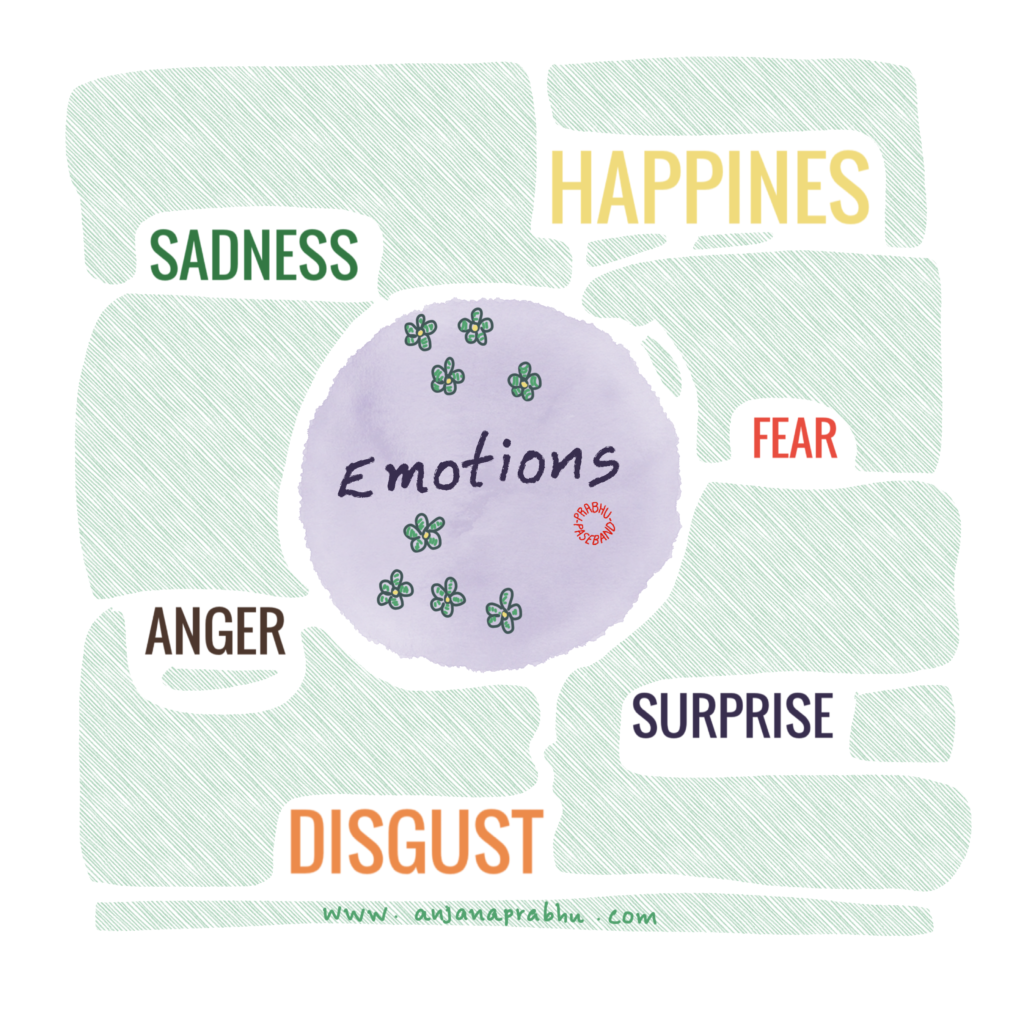
As you might already have noticed, we have both positive and negative emotions as major ones.These emotions have been essential for our survival in harsh conditions over thousands of years. Fear helped us to be cautious of any predators or even natural elements like fire whereas happiness helped us to pursue more of that which made us feel good.
Over time, these emotions got ingrained in our physiology that we rarely can distinguish emotions from thoughts. Our brain processes information consciously and subconsciously. Some of the fear that we possess are learned due to previous experiences while some others are embedded within us.This melange of learned reactions through experiences makes us unique in reacting to different situations differently which in turn makes us difficult to understand each other. As “being understood” is an important need for every human being, communicating emotions effectively becomes the need when we have to work together.
More often than not, we mix up the terms “emotions” and “feelings.” Feelings are nothing but the interpretation of emotions. To help understand emotions, it’s mandatory to look at certain familiar terms which are described within the illustrations. Try using these words and illustrations as a basic algorithm to trace your emotional root cause.
Being Fearful:
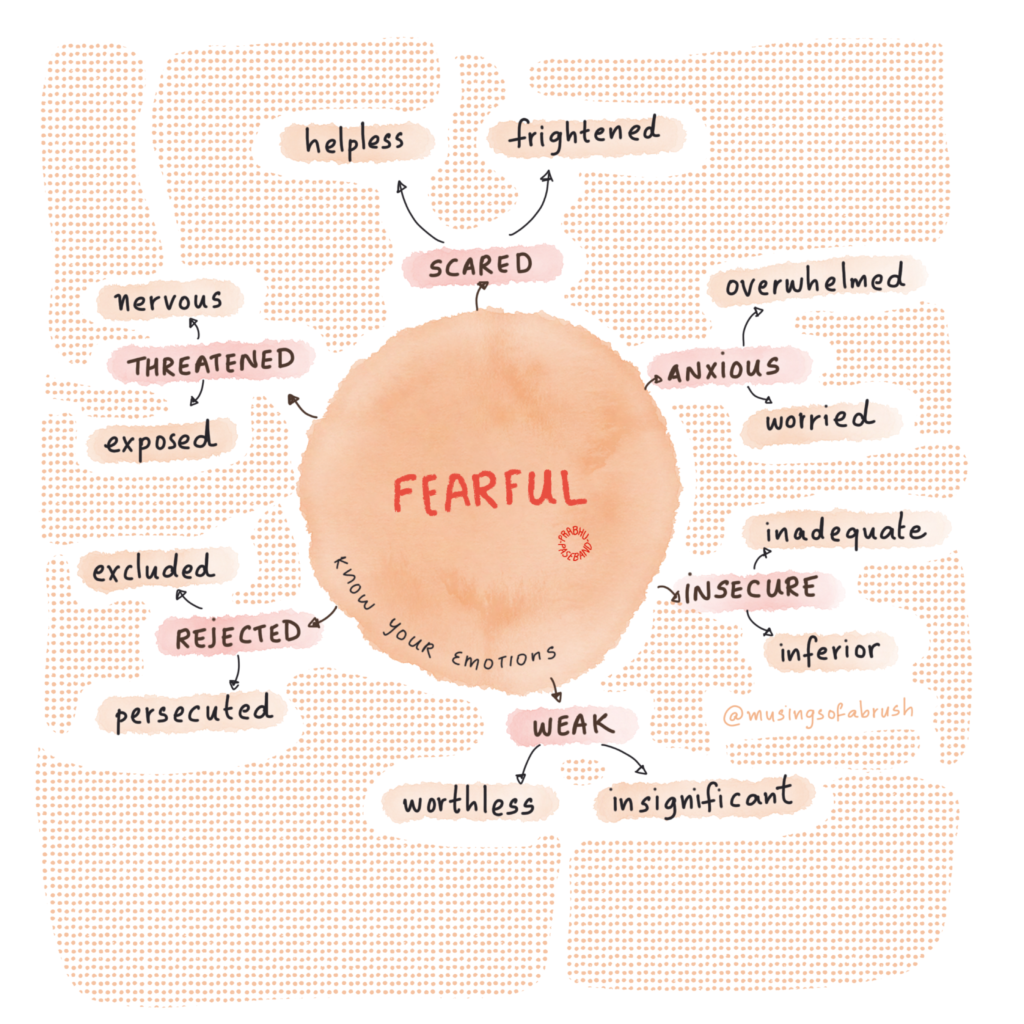
Imagine a Friday 4:30 pm. Your boss pings you about some urgent work that you have to finish by Monday morning. You already had plans for this weekend with your family. Finishing this work makes you feel overwhelmed, hence anxious. Your heart rate goes up, and you’re feeling scared of the outcome if you do not finish work over the weekend.
Behind this fear, behind this anxiety, there is a reason to feeling overwhelmed.This is the point which you have to tackle. Why did the boss contact you at this moment? Does this happen a lot? Do I say yes to everything? Will my husband understand this situation? These sets of questions will help you overcome the eventual fear by understanding how you work as a person. This kind of self-awareness is extremely important in building a high emotional understanding.
Being Happy:
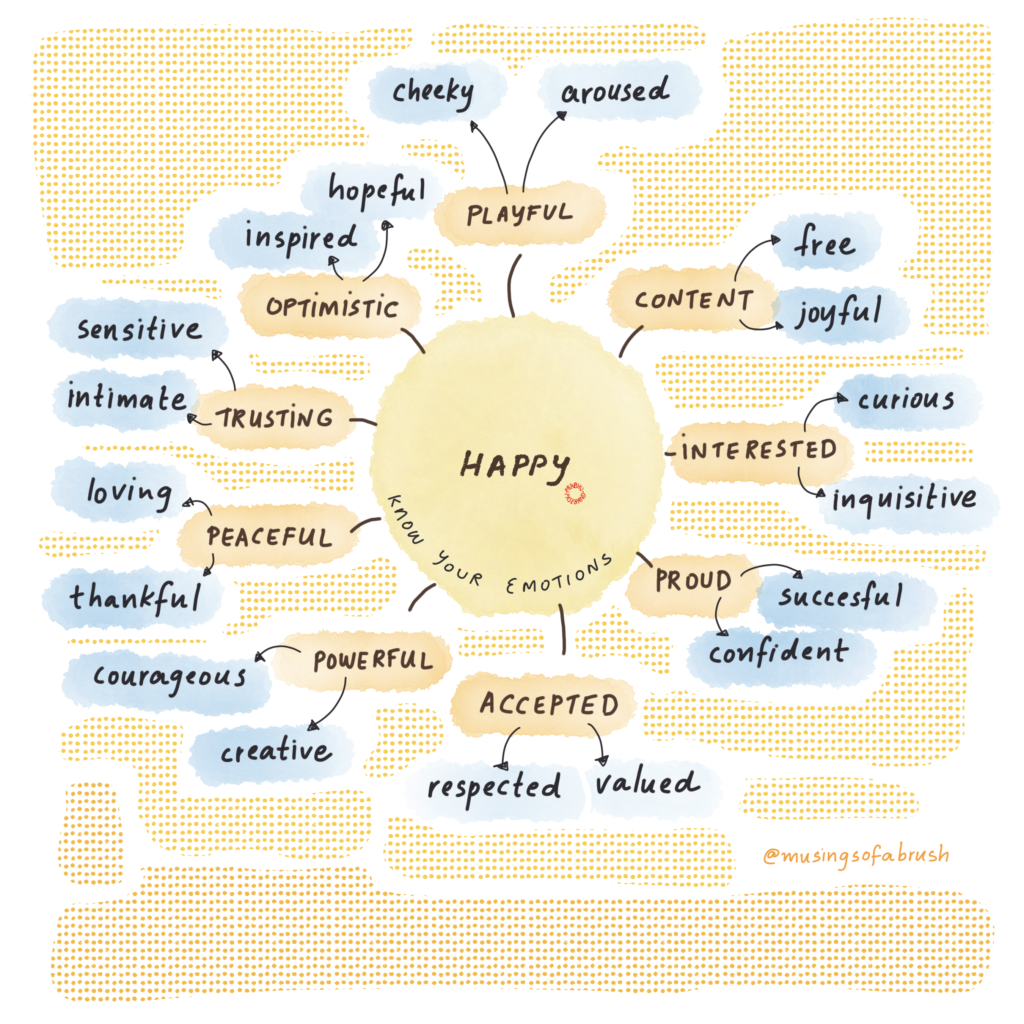
A positive feeling we all want to have every single time. We yearn to feel happy. We think having a lot of money is the key to happiness or finding peace is the ultimate happiness. From the illustration, we see that we have a lot of paths to happiness. If you feel happy right now, it will be a good idea to pen down what are the elements that make you happy at this very moment. Doing those things which make you happy over and over helps in the formation of a habit thereby making happiness an everyday state!
Being Sad:
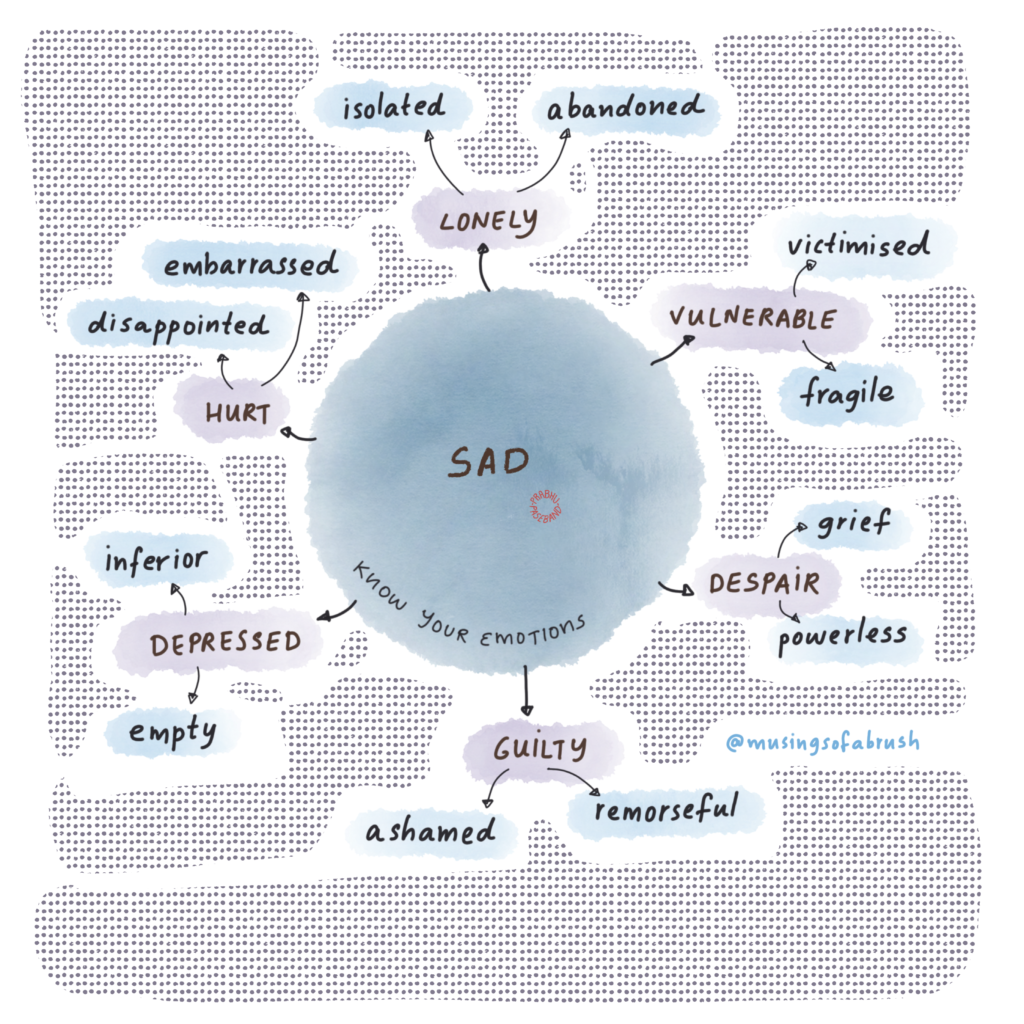
A human born on the face of earth needs to experience sadness. The society which we live in has made us into what we are by accepting and rejecting certain traits over the others. In some cultures, not showing emotions is considered to be right and polite. Behaving in this manner from childhood can make one suppress their sadness sometimes even resulting in ignoring the very emotion.
Being Disgusted:
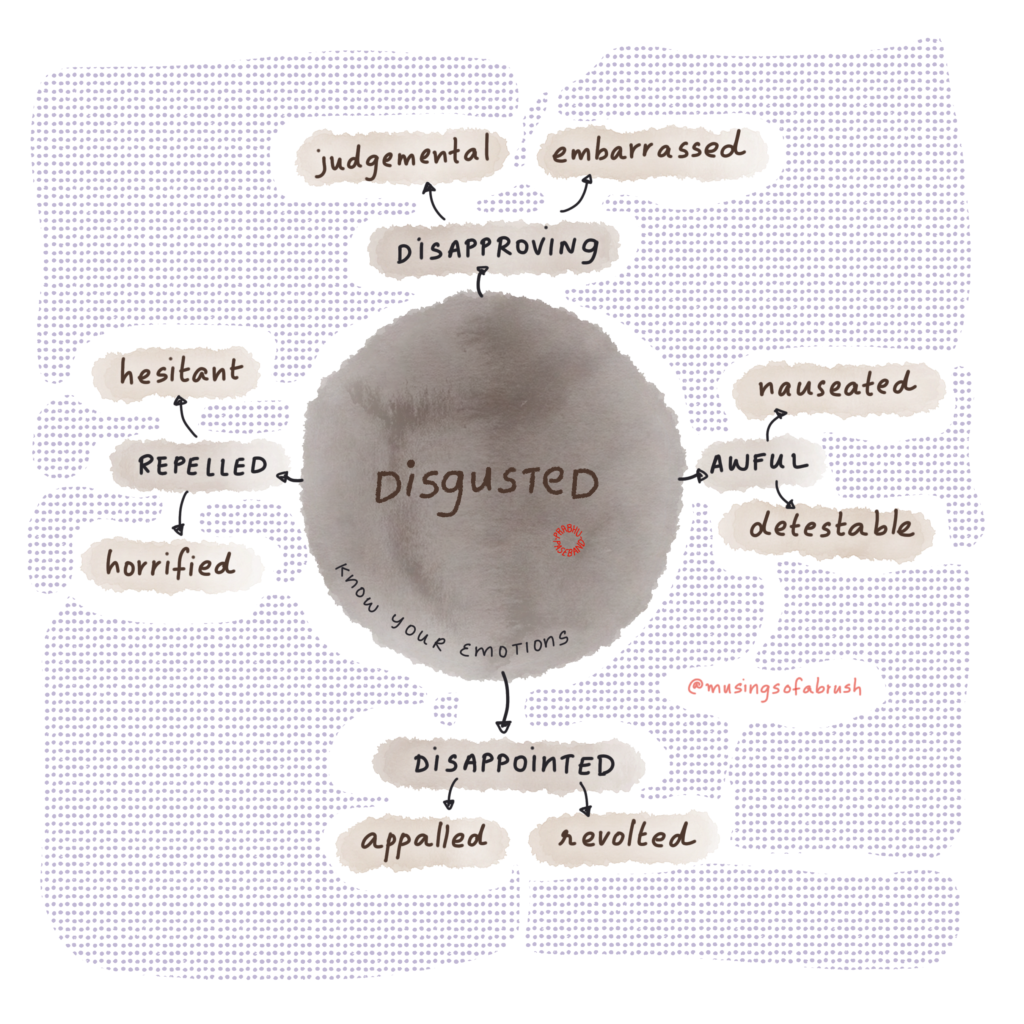
Disgust can have mental or physical origin. We know that stress can even induce nausea in some of us. It is usually an emotional response to revulsion. Disgust helps us keep away from things that could be bad for us, like the smell of rotten food keeps us away from it.
Being Angry:
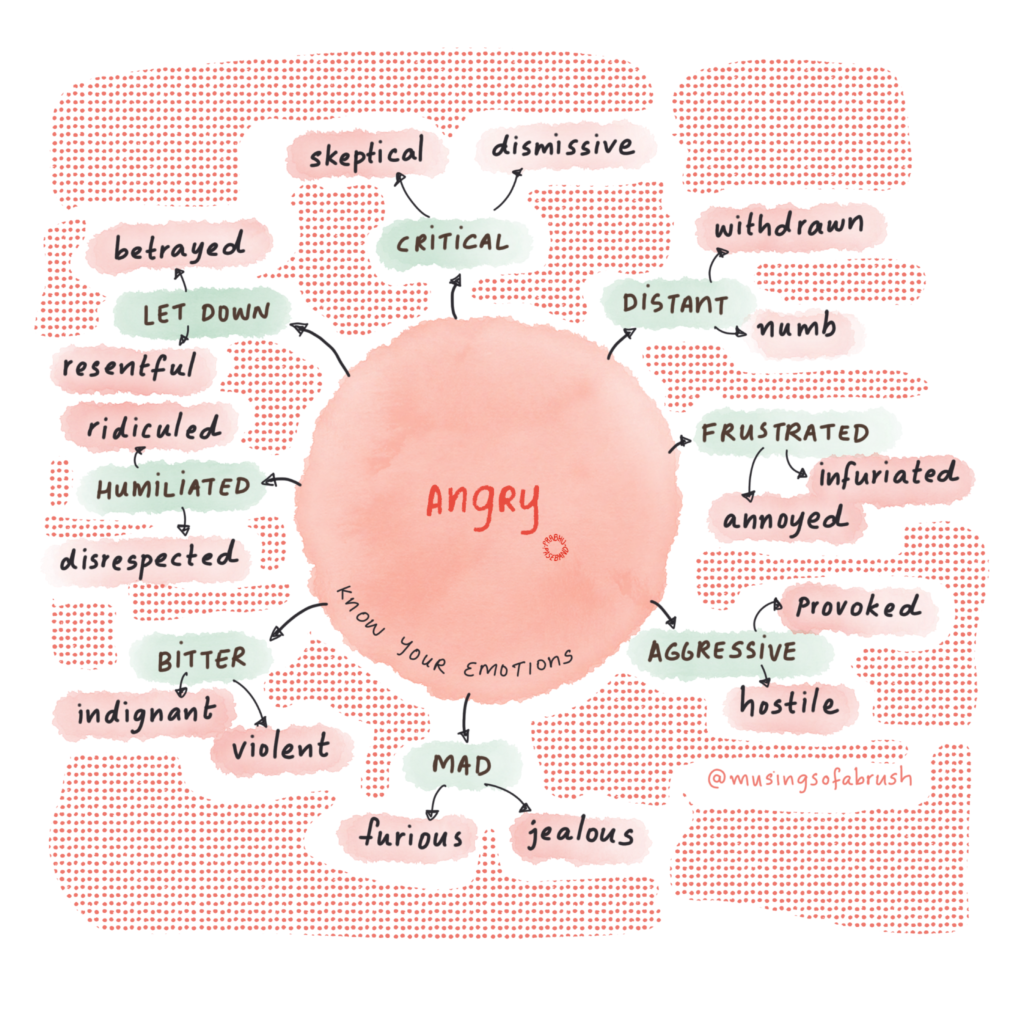
Anger as an emotion developed as a trait to protect one’s own kith and kin. As humans started living a communal life, dealing with external threat became necessary for their survival. Threatening faces and complex physiological responses accompanying anger helped to ward away even humans of other communities.
Surprise:
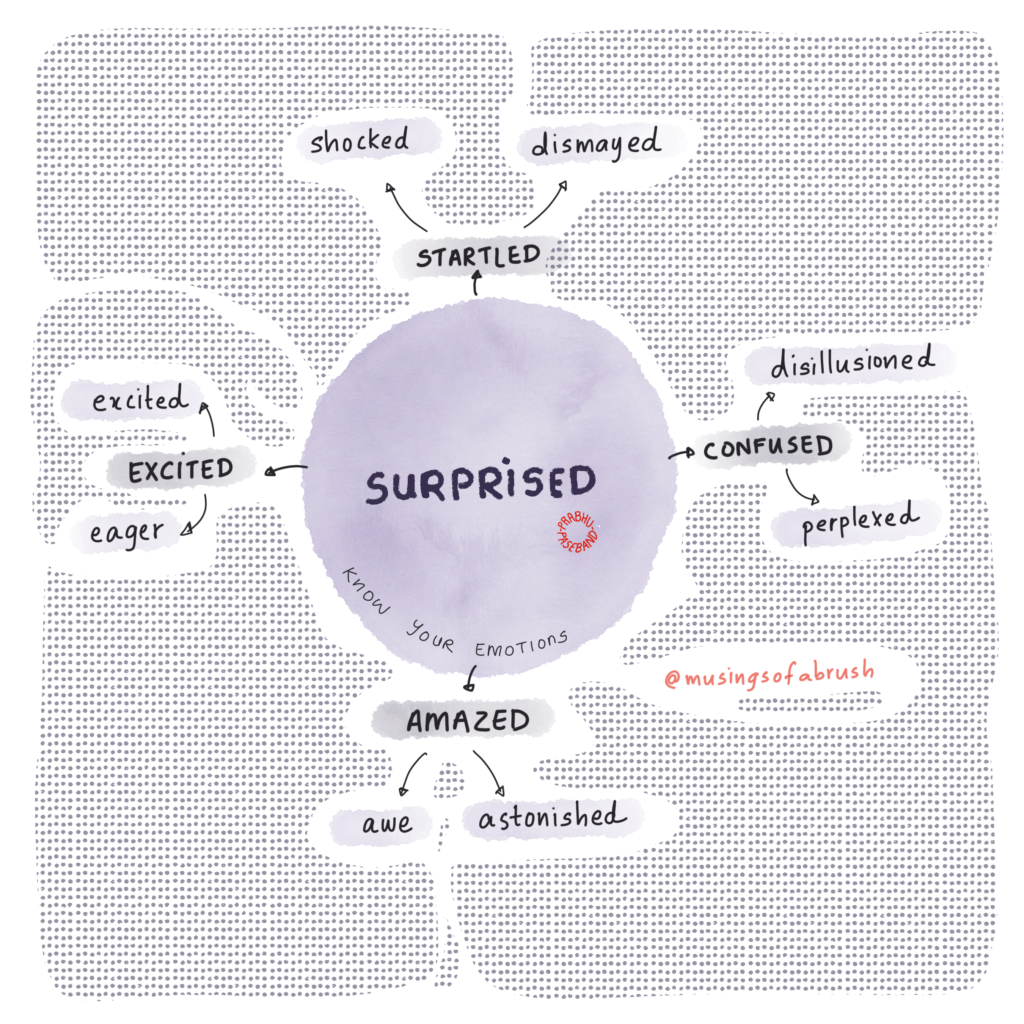
We all like pleasant surprises. However, life surprises us with unforeseen events which we rarely are prepared for. But this emotional surprise is often accompanied by shock.
The need to interpret and understand emotions:
These emotions, being a part of us are necessary in our daily life. They help in securing a better quality of life for each of us by acting as an indicator so that we can understand how we behave in different circumstances. This behaviour if one studies closely can shed light to our own little patterns which makes our personality. This being the first step of knowing ourselves, we get closer to the state of self-awareness from where we can make better decisions for us and others around us. So next time you think you or someone around you are quite emotional, try to understand the reason behind that emotion by logically tracing to the reaction and response to a particular situation.